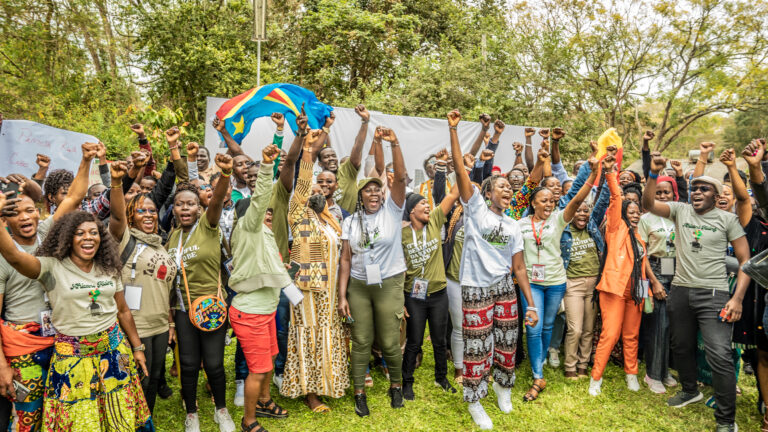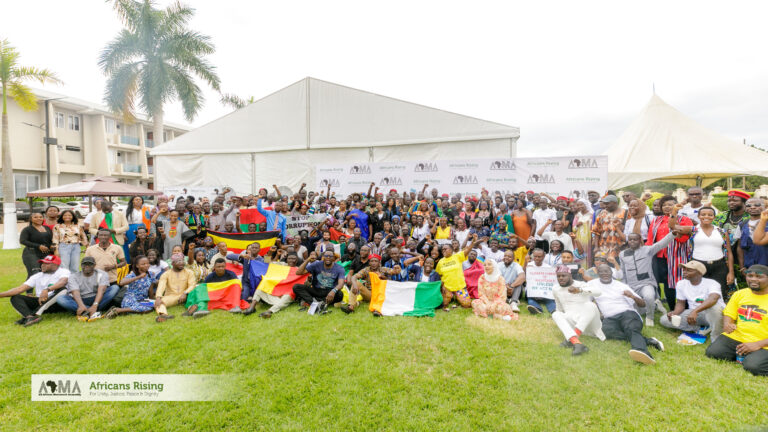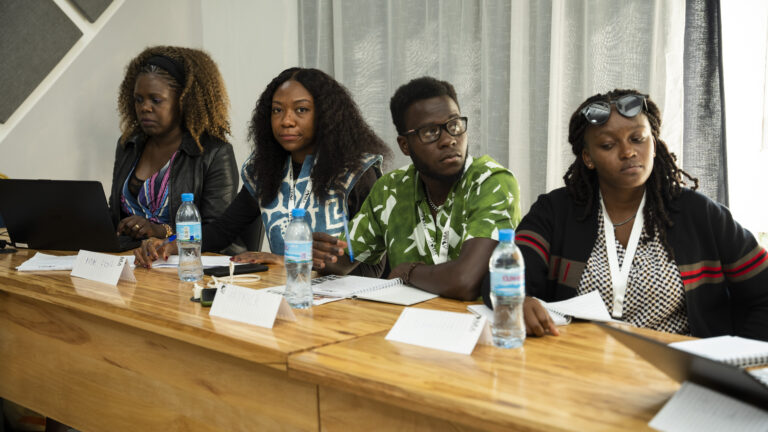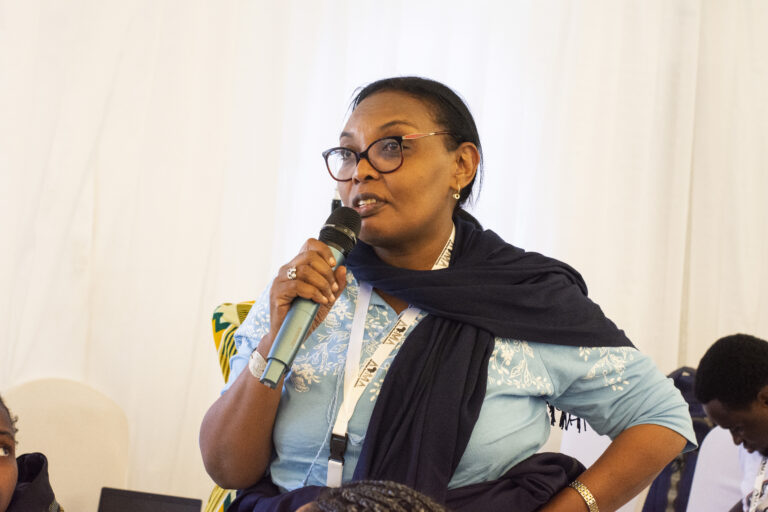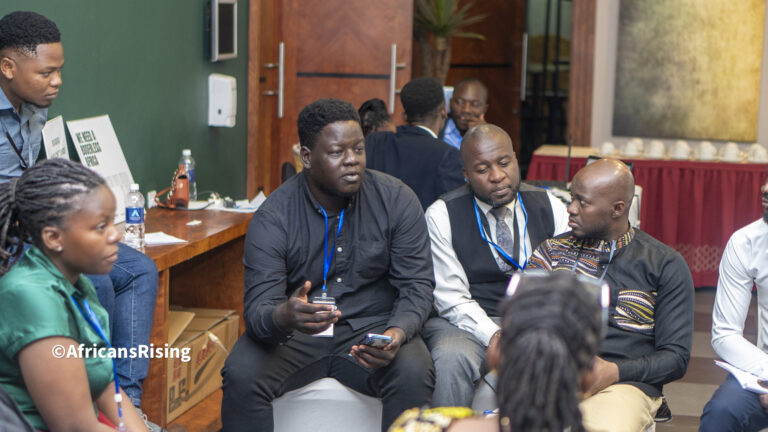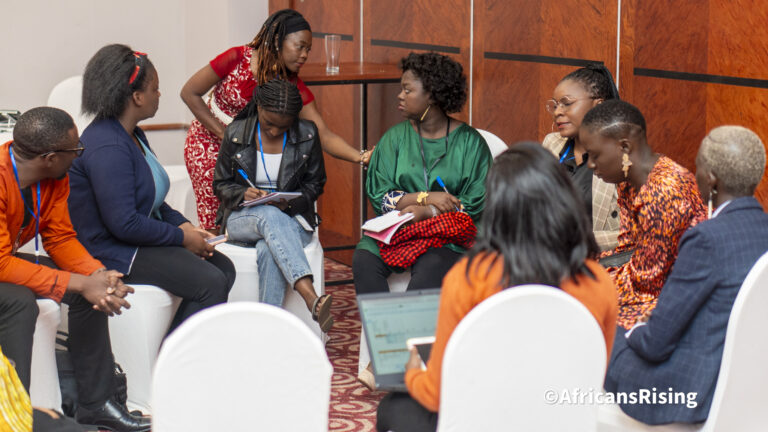The civic space in East Africa is multifaceted, as different countries in the region are facing diverse realities. This was revealed during the East Africa regional consultation organised by Africans Rising on the 7th of June 2024.
In Tanzania the civic space is improving from a dark history of the previous regime. Youths engage and get in job creation initiatives while gender issue dialogues are hot and gaining traction in efforts to bring inclusive and gender sensitive development processes.
In Kenya on the other hand, the civic space is shrinking due to recently introduced laws on registration of grassroot and community based organisations. Also the law limiting demonstrations and freedom of assembly.
Above all, it was also revealed that people in East Africa are not pan-Africanists. They are just going about their day-to-day businesses. There is equally a lack of electoral justice.
In his opening remarks, the Africans Rising Coordinating Collective Board Co-chair, Mutemi Wa Kiama said “the aim of the regional consultation was to get feedback from members and register their concerns on issues they would like to be dealt with during the upcoming All Africans Movement Assembly, AAMA and present any major concerns to be answered”.
Shading more light on AAMA, movement coordinator Hardi Yakubu, stated that “AAMA is the gathering of African people everywhere to discuss issues affecting Africa and design the future we want to see”.
According to Hardi, “African leaders have failed to give us the mandate of what Africa should be. We are therefore going to AAMA with a solution mindset of what we want Africa to be”.
The virtual event moderated by Africans Rising Engagement and Collaboration Lead Ancel Langwa, had two question and answer sessions facilitated by the CC co-chair Mutemi Wa Kiama and Doris Olela, during which AR members in East Africa provided answers to the following questions:
- What issues should be considered for discussion at the All African Movement Assembly?
- The issue of accountability of African leaders and compliance with the AU and national human rights mechanisms?
- Empowering the young people to engage in politics
- Peace and Security and how the young people and women through the local resources that are available in the East African Region or in Africa, since the outsourced support from the west, seems as if they dont want us to move from the challenges that we are having.
- How can we use the African indigenous knowledge (AIK) to ensure there is peace, security, African Rights and how best can we use the AIK that our forefathers used to fight for our freedom and were successful.
- The issue of borderless Africa is very key and we must talk about industrialisation of Africa utilisation of our resources
- Ecological justice, a borderless Africa, political and economical sovereignty
- Sharing of creative strategies that we can use to approach and drive the agenda of Borderless Africa.
- The issue of preserving and promoting African culture and arts
- One African Currency
- What do you think the new strategy of AR should look like in the next 5 years?
- The new strategy should include leadership development to help nurture young leaders across Africa to take on roles in Governance, Activism and community organisation.
- Thinking of promoting values like Ubuntu, harambee, Black lion (Ethiopia), etc that we liberate ourselves from Western orientation.
- The strategy should also include economic empowerment programs to enhance sustainable development of its members and help in funding the movement.
- Peace education
- Political education for its members
- AR has a vision to be fully funded by Africans to enhance ownership. What strategies can AR explore to achieve this?
- Selling of merchandise and artworks provided by members and taking a percentage to fund the movement. (This can be done online e.g. on website and social media also physically during AR events)
- Decentralise resource mobilisation by creating West, East, Central, South and North African Secretariats.
- Create country resource mobilisation focal points.
- Engage the diaspora.
- Have AR merchandise on sale at every event gathering.
- Which Organisation/Movement would like to be a part of the Borderless Africa Movement in their region?
- Wahenga Youth Group
- Yilt Africa
- What is the Civic space like in your region/country? Gender? Youth?
- The civic space is different for each country as explained above..
- What are the burning issues in your region/country that need collective action? And how can movements work together to collectively address it?
- The Issue of evictions along Riparians areas especially among the poor in Kenya after the recent floods
- How do members feel about the activities of the movement with regards to the region. What would they like to see in terms of engagement?
- We feel engaged as Wahenga Youth Group having participated in the Activism awards, Borderless Africa campaign and Africa Liberation Week Activities including the Borderless Africa Convening in Lusaka Zambia.
- Sensitise more youths to join the movement
- Regional Secretariat representatives
- What are the major setbacks to the work of movements and in what ways can AR intervene?
- The issue of capacity building and sustainability of member organisations.
- Financial support
- What is working in your country and why is it working?
- The resilience of people in Kenya.
- What Opportunities exist for collaboration amongst AR members?
- Exchange programs, networking and collaboration amongst organisations doing related activities.
- Creation of WhatsApp groups to get everyone on board.

